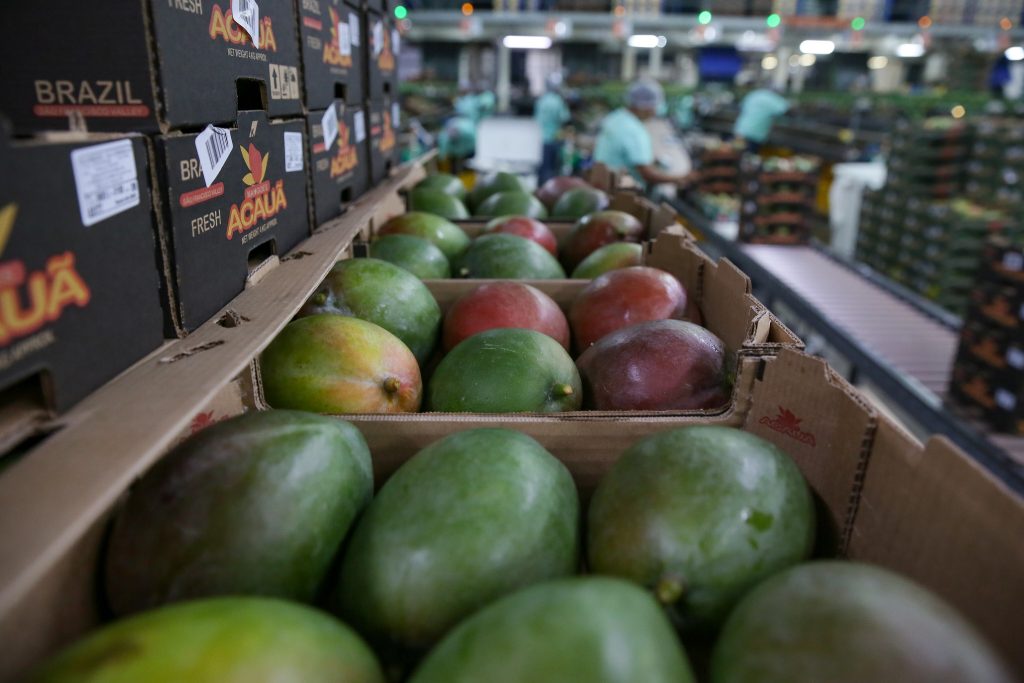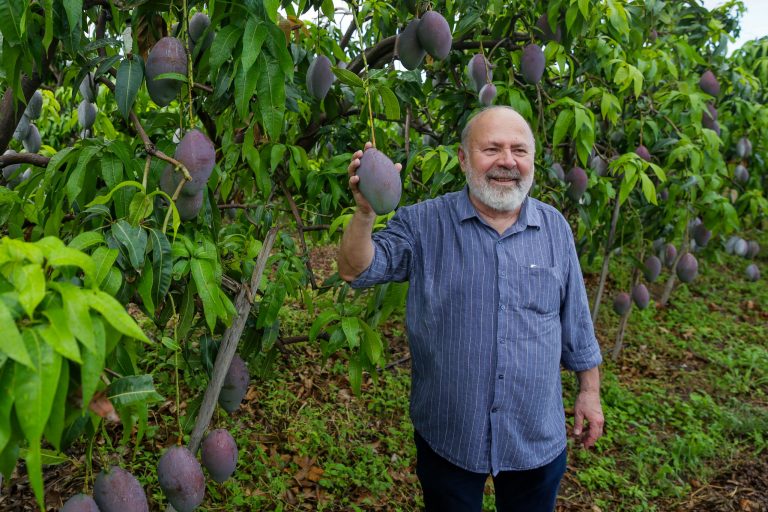Belém do São Francisco – For 37 years in the region of the São Francisco Valley in northeast Brazil’s Sertão, Agrodan has grown mangoes, and it nows exports 97% of its harvest. Founding partner & CEO Paulo Dantas now seeks to expand domestic sales of his annual production of 31,000 tonnes of mangoes per year.

In its early days, Agrodan invested also in banana and grape crops, but they didn’t thrive. Dantas, who spearheads the family business, gradually expanded the company’s mango production and invested in new varietals that were developed and improved in the United States.
Genetic improvement is not exclusive to mangoes, though. Grapes and strawberries are also cross-bred to deliver what consumers want: taste, color, sweetness, tartness, and other traits. The farmer, who “imports” these technologies, pays royalties to the companies that develop them. The rate is usually 5-8% of the gross revenue from sales. And it’s no use to just replant the varietal’s seed – it won’t bear the fruit of the same varietal.
Mangoes for all tastes
After years of investment and relationship with foreign clients, Agrodan went global, particularly to the United Arab Emirates. Dantas says it was a French representative who he had worked with in the past who helped him “leave” Europe. Agrodan’s first export was in 1991. The company had been established four years earlier by Dantas’ father but with great encouragement from his son.
Cemented in the foreign market, Dantas wants to gain market within Brazil. So, he seeks to increasingly appeal to the palate of the Brazilian customers and disseminate in the domestic market the mango that can be eaten with a spoon. The company works with four mango varietals –sweet, reddish Kent; sweet, slightly tart, low-fiber Keitt; reddish, firm Palmer; and high-fiber Tommy, the firmest of them all.
“The red shade of the peel results from the sun bronzing the mango. Green mangoes that stay in the shadow are not that appealing,” he says. For the mango to be bronzed but not burnt, it is treated with a kind of sunscreen made out of natural wax while it grows. The farm was designed for the trees to get the highest incidence of sunshine both in the inland farms and those on island on the São Francisco River.
When harvested, the mangoes go to the packing house, where they’re packed, weighed, examined and chilled to be distributed later. “We have the largest packing houses in Brazil. Worldwide, Israel has a bigger one that even uses robots. But if I do use a robot, I’d cause unemployment, and I don’t want that,” says the businessman in a region where the growing of fruits – particularly mangoes and grapes, crates 120,000 direct and 480,000 indirect jobs.
From orchard to classroom
But Dantas believes the activities of Agrodan must bear fruits beyond crops. Inside one of its farms in the municipality of Belém do São Francisco, 230 kilometers from Petrolina, Pernambuco state, the company keeps the Professora Olindina Roriz Dantas School, named after Dantas’ mother, with 371 students.
The budget to build the school came from Agrodan, but it was a personal initiative from Dantas. “I asked my siblings to use a part of the company’s money to build the school,” he says. “The school is Agrodan’s greatest result, its greatest asset,” he completes.
Read more:
São Francisco Valley: Fertile ground for exports
From Japan to UAE, via Brazil’s Sertão
The journalist traveled by the invitation of CNA
Translated by Guilherme Miranda




